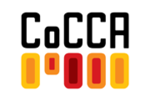Difference between revisions of "Council of Country Code Administrators"
| Line 32: | Line 32: | ||
==CoCCA Open Registry== | ==CoCCA Open Registry== | ||
The CoCCA OpenReg works on multiple platforms that include Solaris, MacOCX, Windows and Linux. This is an open source based registry where the Registry-Registrar components are full featured as well as contain several other value added features. The open registry is also capable of personalized [[Whois]] and Automatic PDF invoicing.<ref>[http://www.sanog.org/resources/sanog6/aslam-cocca-preso.pdf]</ref> | The CoCCA OpenReg works on multiple platforms that include Solaris, MacOCX, Windows and Linux. This is an open source based registry where the Registry-Registrar components are full featured as well as contain several other value added features. The open registry is also capable of personalized [[Whois]] and Automatic PDF invoicing.<ref>[http://www.sanog.org/resources/sanog6/aslam-cocca-preso.pdf]</ref> | ||
| − | |||
===Features=== | ===Features=== | ||
The zone generator customizable Whois feature of the CoCCA OpenReg allows the public to access all the information concerning Whois. The open registry also offers the users a domain transfer feature, which allows full domain name transfer controlled by the registrant. Flexible customization applied to policies of registry and renewals are also some of the features of CoCCA OpenReg. It also enables automatic invoicing for bulk renewals as well as multiple annual renewals. The registration restriction feature is a key option, which controls use of offensive names and generic names such as names of places and famous personality names.<ref>[http://www.sanog.org/resources/sanog6/aslam-cocca-preso.pdf]</ref> | The zone generator customizable Whois feature of the CoCCA OpenReg allows the public to access all the information concerning Whois. The open registry also offers the users a domain transfer feature, which allows full domain name transfer controlled by the registrant. Flexible customization applied to policies of registry and renewals are also some of the features of CoCCA OpenReg. It also enables automatic invoicing for bulk renewals as well as multiple annual renewals. The registration restriction feature is a key option, which controls use of offensive names and generic names such as names of places and famous personality names.<ref>[http://www.sanog.org/resources/sanog6/aslam-cocca-preso.pdf]</ref> | ||
| + | ===Latest Additions=== | ||
| + | Since March 2011, the CoCCA Registry software was also updated with the extensions – CHIP (ClearingHouse for Intellectual Property) and trademark (TM) EPP. The software is in use by the managers of more than 30 IDN and ASCII Top Level Domians, with six more presently being under migration process.<ref>[http://www.nic.net.sb/documents/rules.pdf]</ref> The CHIP technology has been implemented to safeguard the internet rights of the trademark owners effectively and efficiently. The CHIP validation trademark information will be made available through the historical abstracts and WHOIS registry.<ref>[http://www.aptld.org/kl2008/files/52%20-%20cocca%20%5BCompatibility%20Mode%5D.pdf]</ref> | ||
==CoCCA Registry ccTLDs users== | ==CoCCA Registry ccTLDs users== | ||
Revision as of 21:02, 7 June 2011
| Industry: | Registrar |
| Headquarters: | Drumsite, Christmas Island |
| Country: | Australia |
| Website: | cocca.cx |
Council of Country Code Administrators, or CoCCA, is a non-profit organization and a forum engaged in the collaboration of ccTLD managers. Membership to this organization is free.[1] The Council of Country Code Administrators also happens to be an active Domain Roundtable participant.
Services
CoCCA is involved in the following activities:[2]
- Deployment support
- Harmonized development of policy
- Training and technical support provisions for ccTLD members
- CoCCA OpenReg development, registry software
- Additional value added and upgrade features as per the demands and needs of the ccTLDs.
CoCCA Open Registry
The CoCCA OpenReg works on multiple platforms that include Solaris, MacOCX, Windows and Linux. This is an open source based registry where the Registry-Registrar components are full featured as well as contain several other value added features. The open registry is also capable of personalized Whois and Automatic PDF invoicing.[3]
Features
The zone generator customizable Whois feature of the CoCCA OpenReg allows the public to access all the information concerning Whois. The open registry also offers the users a domain transfer feature, which allows full domain name transfer controlled by the registrant. Flexible customization applied to policies of registry and renewals are also some of the features of CoCCA OpenReg. It also enables automatic invoicing for bulk renewals as well as multiple annual renewals. The registration restriction feature is a key option, which controls use of offensive names and generic names such as names of places and famous personality names.[4]
Latest Additions
Since March 2011, the CoCCA Registry software was also updated with the extensions – CHIP (ClearingHouse for Intellectual Property) and trademark (TM) EPP. The software is in use by the managers of more than 30 IDN and ASCII Top Level Domians, with six more presently being under migration process.[5] The CHIP technology has been implemented to safeguard the internet rights of the trademark owners effectively and efficiently. The CHIP validation trademark information will be made available through the historical abstracts and WHOIS registry.[6]
CoCCA Registry ccTLDs users
- Christmas Island (.cx)
- Afghanistan (.af)
- Dominica (.dm)
- Timor-Leste (.tl)
- Legacy (.TP)
- Mauritius (.mu)
- Norfolk Island (.nf)
- South Georgia (.gs)
- Namibia (.na)
- Mangolia (.mn) (Use under discussion)
The members at CoCCA aim and work towards developing administrative policies, technologies and models through consensus in order to bring improvement in the technical stability, interoperability, utility and technical stability of the ccTLDs members with DNS.[7]
